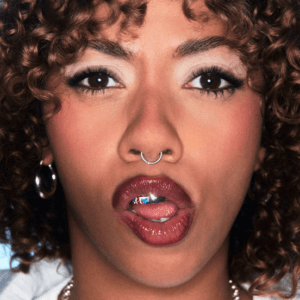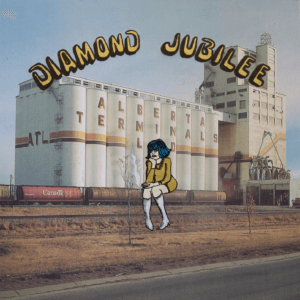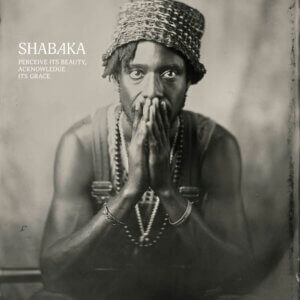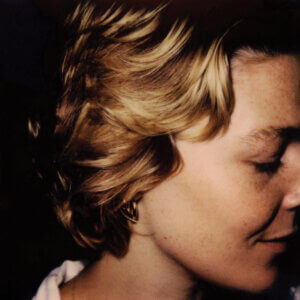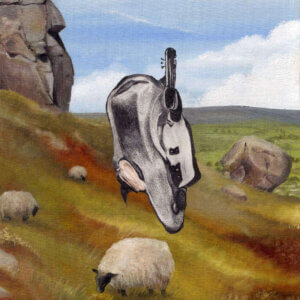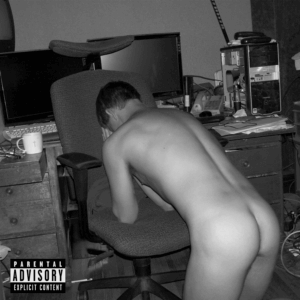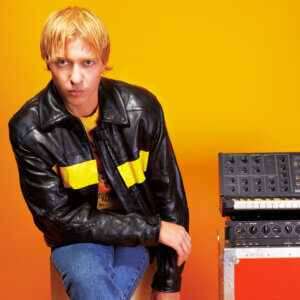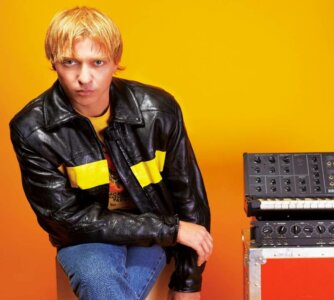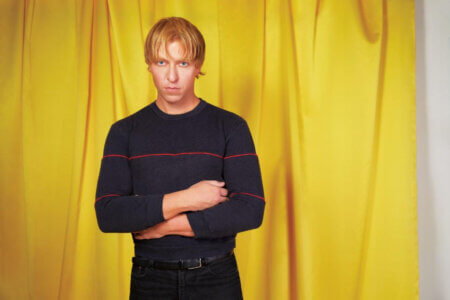The Chains Are Off The Drums’ Jonny Pierce

When life hands you lemons, you make lemonade, or for Jonny Pierce, lead singer, songwriter and founding member of the Drums, you make an album.
By now, the Drums are veterans of the American indie music circuit, grinding their way to prominence since their first self-titled album in 2010, procuring a reputation for their synth-heavy sound and bouncy, happy tunes along the way. But Pierce’s music is not that simple, the lyricism and meaning behind each song paints very intimate and emotional stories about failed romance, an oppressive childhood and life’s woes in general. Pierce admits to allowing the sadness and pain to consume him during his creative process, as he believes he makes better music that way. The final product is happy sounding music, with heartbreaking premises – and it’s wonderful.
“Abysmal Thoughts” is the Drums’ fourth studio album and it is set to drop on June 16th via Anti-, Pierce was nice enough to chat with us in regards to how this album came to be. The singer explains how life threw him “three curveballs,” which went on to heavily influence production. The result is one of the Drums’ best albums to date. Check out the full conversation below.
Max Asper: Hey Jonny, I had a chance to listen to the album [“Abysmal Thoughts”] last night and I really enjoyed it, it’s a really great project.
Jonathan “Jonny” Pierce: Thank you so much, that’s really nice to hear.
MA: So it’s coming out June 16th, and you’re going on tour for it starting in July. It’s been a couple years since your last project, how does it feel to kind of get back into the swing of things?
JP: Well, I mean… It’s a weird question only because the answer is kind of boring. I don’t ever stop working, you know? There isn’t a time when I say, “Okay the record is done, time to kick back.” I think these days you really have to be putting stuff out as frequently as you can so people don’t literally forget who you are [laughs]. So there’s this whole… I’m trying to balance living life, sort of breath, and letting inspiration kind of organically happen, and also making sure I’m getting shit out there. So, these last few years have been… I’ve been in the spirit of constantly working, writing, chipping away at this last album.
Life also really threw me some curve balls in the last few years, which, anyone who knows me and my process, as hard as those curve balls were, they were really fucking great for song writing and it really gave me all the material that I needed because these things were so substantial you know? I went through the most significant break up of the most significant relationship that I had ever had, and it was really devastating. I did everything from going to a therapist for the first time, to trying to write music – which sucked – to literally he and I moved to LA to try and start over, and nothing was really working and the relationship got worse. So I started writing music over in LA and those songs are some of the heavier songs lyrically.
Then I just couldn’t handle much of that anymore and I really missed New York so I moved back to New York City, and just as I was moving to the city, Jacob Graham (co-founding member of the Drums), my now ex-band mate, wrote me and just sent an email on a random Tuesday that just said, “Hey, how are you? I don’t really want to be in the band anymore, I have all these other passions that I want to pursue. I’m not getting joy out of being in this band and I haven’t for some time and I’ve gotta go.” So here I am, I just lost someone very close to me, and then my bandmate and best friend since childhood essentially also said, “I’ve gotta go.”
Anyone that knows me and listens to my music, there is reoccurring theme and that’s this feeling of being abandoned and being left, and so it was sort of this, “Oh my god, here we go again.” So life really gave it to me, but it was really great for writing. so when I got back to New York, I was like, “What am I going to do I’m all alone?” And then quickly after that I thought, “Wow, I’m all alone. This could be a really good thing.” What it ended up doing ultimately, without me knowing it, was it pointed me inward, it started a chapter of self-exploration. Instead of just saying, “Woe is me!” and “What is going on?” It was more “Who am I?” and “What am I?” and “Why am I?” So songs like “Mirror” and other songs like that were made when I was really questioning, “What’s the point of me in all of this?” or “Is there a point to all of this?”
MA: Sounds like you are having almost an existential crisis?
Very existential. And it was the first time in my life when I started really focusing on, “Ok Jonny, who the hell are you? And what do you even want? Or do you even want anything?” It just felt like a really significant rattling of my cage. So I went to upstate New York to a little cabin that I have there that I bought for song writing. I recorded the rest of the album up there. Because I was on my own, I was able to really employ all of these things that I wouldn’t have been able to employ such as everything from using a coach whistle as an instrument – I don’t think Jacob would have liked that. Even certain melodies, I’d be sitting there with a guitar or a bass and I’d come up with this little riff, and I’d catch myself, because it was so second nature to me to say, “Oh well Jacob is going to hear this, would he like this melody?” So even though Jacob wasn’t a big songwriter with the Drums, I’ve always done the lion’s share of songwriting and recording. I guess knowing that he was around, and would be playing these songs live, that had an affect on me. “Oh maybe I’d switch this to something Jacob would like because he’s got to play it, or he’ll be around it, he’s going to be representing it with me.”
So now I would just write melodies that I loved, and I would write lyrics that were much more sexual than Jacob would allow for. You know, talking about cocaine or just getting really detailed and personal about past experiences in my life as a little boy and teenager and stuff that I wasn’t really able to do. I would sort of have to generalize a bit more than I’d like, and I don’t have to do that anymore. And when it came time to visual aspects, putting a photo of my boyfriend sniffing a gym sneaker on the cover of the album…
MA: -That’s who it is, I was wondering who it was.
That 1000% would not have been allowed if there were other people in the band. So here I am again being able to finally just do it.
MA: Do you enjoy having this power and full control like this instead of writing in collaboration with other people?
Well the one big scary thing is that if it all goes to shit, and everyone hates the record, there is nobody to blame [Laughs]. Except for yourself. And you are not sharing the weight with anyone.
MA: Didn’t you work with Jonathan Schenke a little bit?
I did, but he wasn’t really on the creative side that much. So basically how [the album] happened was like, I recorded all the sounds up at my cabin and in LA, and then I brought those sounds to him and we would feed them through different processors or we would record them through analog tapes and then record them back digitally. [Schenke] was helping with the sonics of the whole thing, but the sounds themselves were all me.
That’s the most I’ve collaborated with anyone outside the band. I really wanted to kind of… I thought this would also be a chance to do that, Jacob was so very much DIY and I think that was always a strength of this band – just sort of the looseness and the accidental sonics that are all over our records. I think our albums technically have always sounded like shit, but in a really charming, nice way. But I wanted to kind of push it a little bit more, not the shitty aspect. I wanted to brighten it up a bit and god forbid get some radio play. Just trying not to die over here!
MA: That’s funny that you say you are brightening it up a bit because I felt like on some parts of the albums it got a little more edgier than normal, especially on songs like “Are You Fucked” and “Head of the Horse.” Where does that come from?
I mean it’s always been there, it just hasn’t always been so allowed. When we started The Drums, my main vision was to combine – there’s this band called The Wake that were on Factory I think for their first album and then they did a bunch of records off Sarah Records. I wanted to combine that sort of kind of indie warble, playfulness with the girl groups of the 1960s like the Shangri-Las, etcetera. I love that kind of combination of the two, I didn’t think anyone had really done that sort of thing, at least to my knowledge, and so we just went for it. We didn’t exactly nail the sound we were going for, but we sounded somewhere close, and people seemed to like it.
It’s this whole thing in your career where you are constantly thinking, “How far can you push things? How far can you go? Will people feel like your slapping them in the face sonically if you try something very different?” Which we have tried a couple times, mainly on Encyclopedia (2014), and people were just like, “I really hate this.” So it’s just kind of figuring out what is our place in this musical landscape I guess.
I get asked all the time, “What records were you listening to, or what bands were you listening to when you wrote this record?” My answer is always the same, I listen to my records, and I try to stay in my world. I don’t want to be influenced too much with what is going on around me. I really think all of that heavier darker material, and the sounds, even sonically, has always been there for me and the chains have kind of fallen off and I’m really able to go for it.
MA: So the gates are open. That’s pretty interesting because when I’m sad, and I think this may apply to most people, I try to be around other people and get it off my mind, but it seems like you really close all doors and allow yourself to soak it all in. It doesn’t sound like that is that therapeutic, does it help you?
Well… Yeah it does help me. I think if you can minimize everything around you, you are going to be able to focus on what is important. To me, I‘ve never felt like I’ve ever wanted to belong to any sort of club. As a matter of fact – so this is a new label situation for me, I’m on Anti- for this record now and when I went into to have my initial meeting with them, the first thing Andy [Kaulkin] said was, “Jonny, here is what we like about you: you’re a fucking weirdo, you’re a loner, you don’t really belong to any group of bands, you’re just a weirdo and you have always kind of been a weirdo. We’ve been watching you for years; we’d love to put out this record.” I felt like finally heard and understood because I had always felt that way myself, I don’t belong with the Grizzly Bears, that whole Brooklyn-y sensitive bro vibe, and then I also don’t belong with the top 40 kids who are at the Jeremy Scott parties.
I’ve always felt like, “What the hell?” It’s never tortured me don’t get me wrong. It’s not like I’ve been bummed like, “God nobody likes me!” I’ve always been okay with being on my own, because I work better that way. But I like that they appreciated and understood that, and I didn’t have to say that to them. You know it’s just very natural for me to work on my own and do things on my own. Actually my boyfriend and I have decided this year to live really minimally, even with the objects in my apartment. I have a couch and a bed and two forks and two spoons and two knives. We decided to have just a couple things; two of each, and a few pairs of pants, a few shirts, and just really right down the line clear out our lives.
We made a decision that our hearts are more important than anything else, so it’s a way to sort of force… You know when there is not a lot of clutter, you’re forced to kind of look at yourself and look at each other, and look through each other. So we’ve already felt like our lives have been enriched. We don’t have wifi in the apartment, or TV.
MA: I can’t believe that, I couldn’t do it.
It’s true! We just decided to just not do it, if we need to get on the internet we’ll go down to this little café down the road and sign on but it’s just been really beautiful to kind of pull away. But anyways, being alone is not scary for me. As a matter of fact, it’s the most comfortable thing. I know so many people who just clutter their lives up, and I wonder why these people feel this weird pressure – and I used to feel this pressure too – to like be friends with everyone, you’ve got to have like 100 friends or you’re not a real person. And what I realized was when I felt like I had 100 friends, I didn’t really know anyone, and no one really knew me, and it’s really about consolidating and weeding out and finding out who it is that really gives a shit about you and who you really think you can help. So everything from being an artist and my personal life, I’m really trying to consolidate and just do things my way now.
MA: So being Canadian, it’s kind of easy for us to stare at America and watch all that is going on, especially with the particularly hostile social and political climate right now. I know you said you like to close yourself off, but has that had any affect on you and your creative process?
I think for the most part when I was making this album Trump was not president. I sincerely did not think there was any chance that that could ever happen. Nobody did. So I wasn’t getting too political, and I was going through so much personal stuff. So I’m not gonna lie and and say it’s a political record, it’s very much a soul searching, me-me-me, I-I-I record. And I’m okay with that.
Toward the end of my recording process I wrote a song called, “Rich Kids,” and that was kind of, after being fed up because Trump was gaining a lot of momentum and it was looking like he could actually win, and there were a lot of people around me that are pretty well to do and just seemed to give zero fucks about it and didn’t think to spend even a second to even worry, not even about themselves, but about people who would really be affected if this were to happen. And it just pissed me off, so I wrote that song “Rich Kids,” which is kind of like a “Fuck You” to… Obviously I’m generalizing, there are rich kids that are wonderful and have a heart for people and have a good value system, but the ones I was around were really pissing me off, and then you have Ivanka Trump and all these people…
So I decided to write this thing, and that’s kind of the only song that even touches on anything political.
If I were to start writing a record now, there probably would be some stuff that’s a bit more political but I was really just focusing on myself and matters of the heart for “Abysmal Thoughts”.
MA: The Drums, as an entity, have been through quite a rollercoaster in regards to personnel changes as you’ve spoken a little bit about. What can you say about the plight of the Drums so far and how do you feel about the future?
Oh god, I donno. I kind of exist in the moment. Well, at least that’s what I try to do. I purposefully don’t think about the future. Even little things, like my manager will send me the schedule of tour dates and all of my players – my guitar players, my drummer – they’ll memorize the thing in a half hour and they’ll be super excited. I don’t even look at the thing until the day before we have to leave to the airport or day of. I go, “Oh we’re heading to London, and then to Australia” [laughing].
I’ve always been… I’m just present in the moment, or I’m trying to be, and I don’t think much about the future. I do dwell on the past a lot, but I try not to as much because there is nothing you can change about the past, you can learn from it but I think most of the lessons I’ve learned from my past have been learned, and so I’m just trying to be, in the work that I’m making, I’m just trying to focus on what is going on now.
When I was recording the first couple albums, there was so much nostalgia. There was so much looking back, and I do it a little bit on the new record, but it’s very much a present record. As far as where the Drums are going to be in a year or two, I have no idea. I will say that I haven’t felt this sort of excitement about a record I’ve made since Let’s Go Surfing (2010), which is 8 or 9 years ago. So that feels really amazing, I kind of handed this album over to the label and said, “here it is, do what you can with it.” And then low and behold, people are excited. I haven’t talked to a journalist yet who hasn’t told me that they just love the album, which isn’t always the case.
MA: Add me to that list of those journalists. I saw you guys at SXSW about a month ago and it was a very happy performance, it was great. Everybody seemed to be into it, and it looked like you were enjoying yourself.
JP: Well I was and I wasn’t, I really don’t like playing SXSW [laughing].
MA: Because of the sound issues?
JP: No, it’s so intense man. It’s so intense, I played eight shows in four days. It was a lot of work, but my agent said that it was great that I did it. I’m just a hard working class dude who is trying to release a record.
MA: Well you fooled me, you seemed to look very happy when I saw you.
JP: [Laughing] Well I get wrapped up! I’ve always said when I walk out on stage I have a really good time. The part that I labor over is the recording and the writing process because it’s all up to me and I don’t play a single instrument. I really have to work really hard at playing any guitar part or bass part; I’ve never taken lessons or anything. And I’m not one of those people that, “Oh they don’t take lessons but they are really good.” I literally hit record, I play like a five second guitar riff and then I try to loop it and try to make it sound like a band, because I’m really, really bad.
MA: I saw that video of you on YouTube from last year showing that exact recording process, I was going to ask you about it. It just seems like there is no way you did that for this album because it is so full bodied and there is so much going on at once at certain parts.
JP: That’s all I did! No, that’s all I did. [Laughing] That’s what I’ve been doing from the beginning man! “Let’s Go Surfing”, I can only represent the songs that people really know from me, and you know that song was just like that bass line – I played it, “da da da da da da da da duh duh duh duh” – I probably tried to play that like 20 times. I only got one take of that, that was good enough, and I just looped it for the whole song. It’s not because I’m lazy, it’s because I literally couldn’t play it well again.
It worked for me! I’ve had people say to me, “Why don’t you take lessons? Because you clearly can play,” and they think maybe I should try to just get good. I’m creative – sometimes it’s good to not… You know it’s like how John Fox used to his synthesizers upside down, or put tape over what the knobs would say so he would just go based off how things sounded rather than, “Oh I need a little more vibrato, I’ll turn this knob,” instead he’s just feeling around and just coming up with great sounds, not really knowing the machine. It’s all these happy accidents that really make these great songs as far as I’m concerned.
MA: I really appreciate you talking to us Jonny, the new album sounds incredible.
JP: Thank you, thanks so much!
Interview by Max Asper
Latest Reviews
Tracks
Advertisement
Looking for something new to listen to?
Sign up to our all-new newsletter for top-notch reviews, news, videos and playlists.
